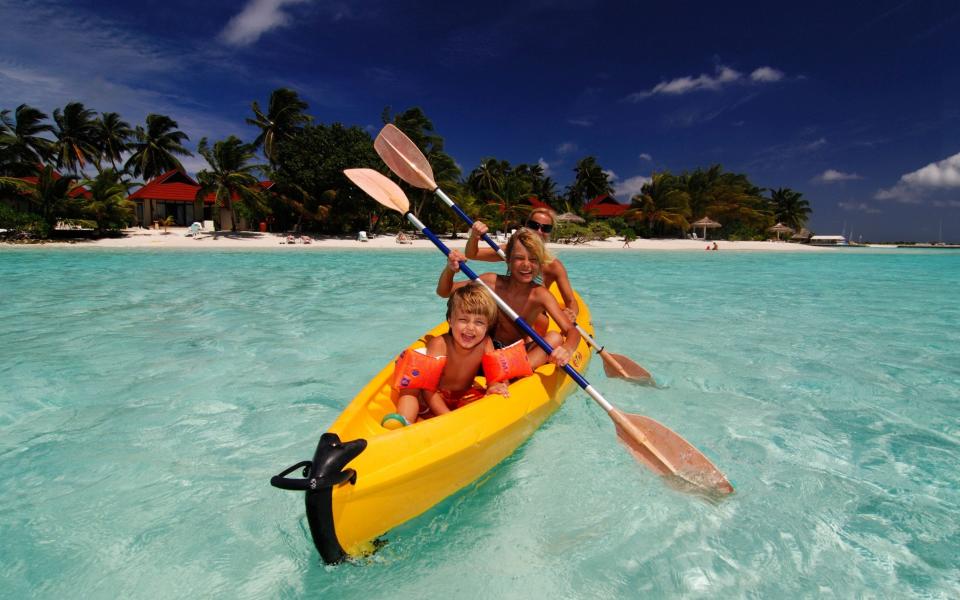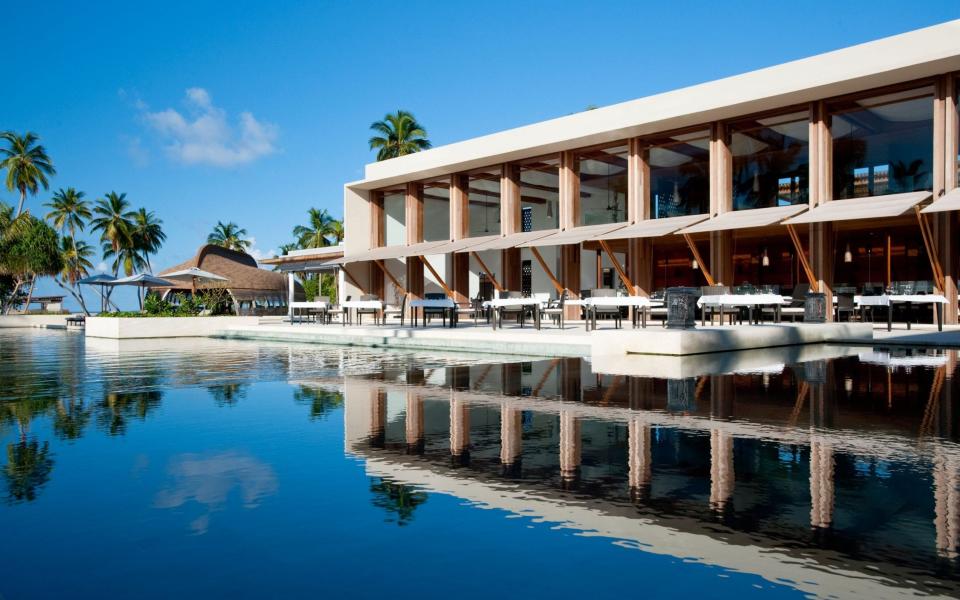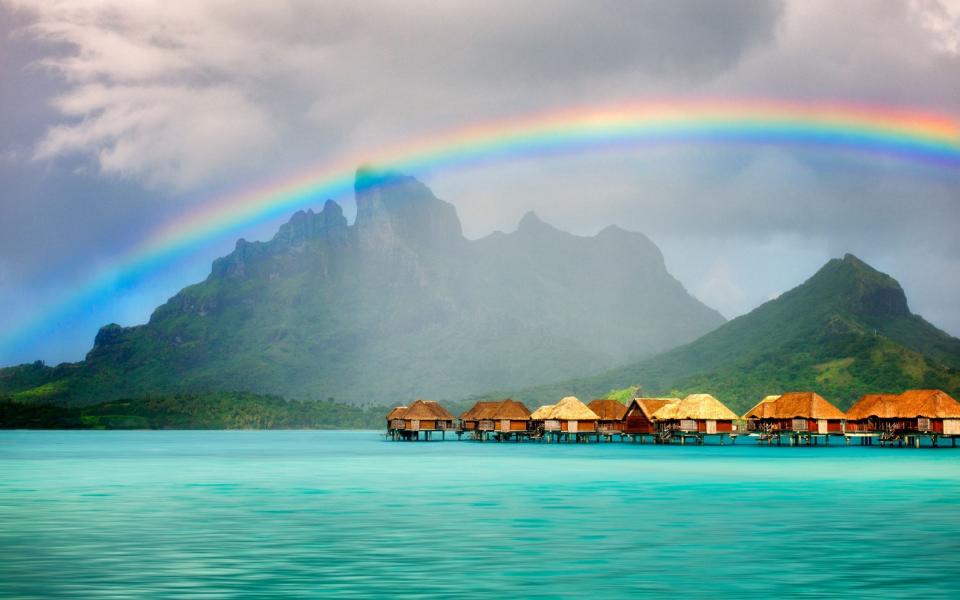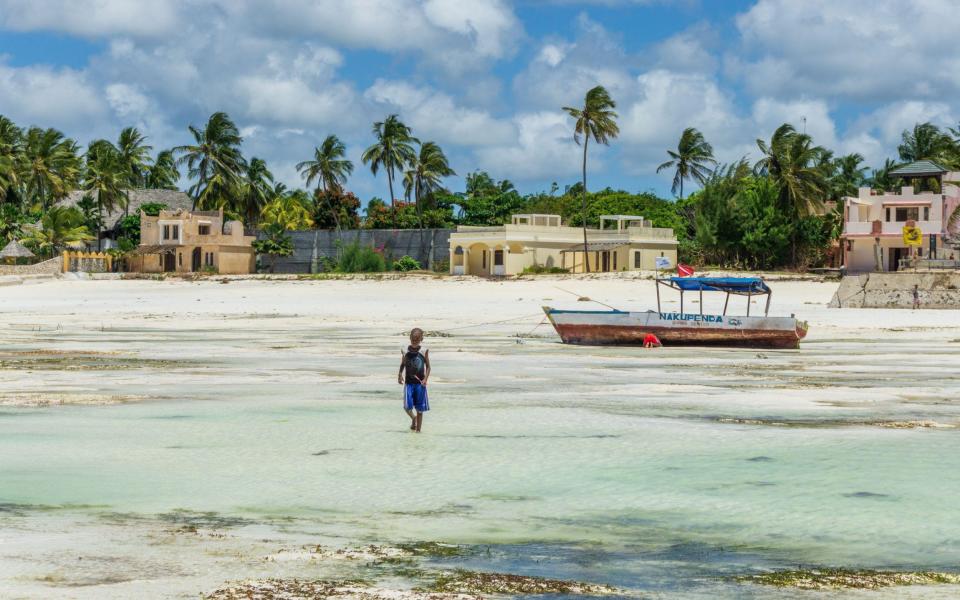What explains our collective obsession with the boring Maldives?

“Welcome to Subsix”, he boomed, “our utterly unique underwater nightclub!” And the door swung open, theatrically, to reveal precisely no other patrons.
I quickly renamed the venue (in my head) “Suboptimal”; but it was only slowly, and several days later, that I realised this was the moment that the Maldives had jumped the shark. Or, indeed, jumped on the shark, because reef sharks are common there, and the same resort also offers skydiving.
That phrase, “jumped the shark”, sums things up perfectly here though. It was originally coined in the TV industry, where the show Happy Days was deemed to have got too silly, and too glutted on its own success, to continue after a notorious episode in which The Fonz water-skied up a ramp and over a marauding Great White. So keep the shark, keep the water-skiing, and simply swap “Fonz” for “1.7 million tourists every year”, and the parallel fits perfectly.
That’s how many foreign visitors flock/flop here in a typical 12-month period, and the good news (if you’re the finance director of an international hotel chain; less so if you’re a shark) is that tourist numbers are already back to pre-pandemic proportions, and are rising even faster than the sea level. From a standing start in 1972, when the country’s first resort opened – with no telephone, and a shaky Morse Code contact with neighbour Sri Lanka as its only link with the outside world – the Maldives this month celebrates the 50th anniversary of its tourism industry, with more than 170 resorts now lining up their loungers for a share of its $3 billion annual revenues.

Virgin Atlantic has just announced that it will be flying direct from Heathrow from next October (alongside BA), while even the brightly uniformed brigade of low-cost carriers are joining the pollution party, with Wizz Air starting cheap Maldives flights via Abu Dhabi last month. A couple of weeks ago the country won World’s Leading Destination for the third time in a row (which feels a bit like when men’s mags hand out “Woman of the Year” awards to the Kendalls and Rihannas of this world instead of the Gretas and Malalas. With countries, as with women, apparently, it’s just about looking hot and alluring).
So what is it with the Maldives? Let’s start with the obvious, shall we, since the obvious is pretty much all there is. Tate-&-Lyle-soft sand, Bombay-Sapphire-blue water, Bounty-ad sunshine – and literally nothing else. With its one-resort-per-island policy, it’s like the Maldives is the distilled essence of “beach holiday” with absolutely every atom of extraneous unpleasantness removed and ground up to make a few more grains of the soft stuff.
And how could you go wrong with that simple formula? You could overcomplicate it. With every island essentially the same – reef, beach, palm, repeat – resorts are starting to fall victim to Dubai-ification as they attempt to outdo each other in an arms race of opulence. Well if the joint next door has waterslides, we’ll build a waterpark; if they’ve got an aerial yoga studio, we’ll chuck up a climbing wall; if they’ve gone for a treetop Japanese fusion restaurant, we’ll need a treetop French fusion restaurant reached by a 200-metre zipline; and if their guests liked that eerily empty underwater nightclub (now frantically doubling up as a restaurant), they’ll love our presumably similarly underused underwater spa and restaurant and £40,000-a-night bedroom.

For some – let’s call them, oh I don’t know, “Russians” – maybe the conspicuous consumption adds to the fun; but for most true Maldivophiles, more is less. Especially when you stop in your flip-flop tracks to think about where everything in this tiny Indian Ocean island chain comes from and how it gets here. For a country that’s right at the cannon-fodder frontline of climate change (its average elevation is a mere 1.2 metres above sea level), it’s bruisingly ironic that every steak, stick of celery and bottle of Stellenbosch has been flown in long-haul. (Despoiler alert: none of those 1.7 million tourists have turned up by train either.)
There are a few relatively eco-friendly resorts – if not green exactly, then maybe a kind of yellowy-turquoise – and there are some great kids’ clubs teaching the next generation to be slightly less selfish than their parents. There are also, still (despite the tragic bleaching of the coral reefs caused by already rising sea temperatures) places where you can see a Blue Planet box set’s worth of amazing marine life: manta rays, turtles, whale sharks, the works.
But a holiday here remains morally awkward – and that’s before you’ve even factored in the societal situation. Those criticising the footballers and commentators currently in Qatar may care to note that the Maldives is also an Islamic state, where bringing in pork, porn, booze or even a Bible is illegal, and where homosexuality and non-Muslim religions are outlawed (though pretty much everything is tolerated in resorts).

A trip to the Maldives requires a kind of suspension of your normal thought processes then. There’s no room for logic in your luggage allowance (after all, if you just want nice weather and beautiful beaches, you can get it cheaper in the Med; if you want seaplanes, there’s Scotland; if you want to sleep overwater, there’s Brittany Ferries). But perhaps that’s the magic of the Maldives. Like Homer’s island of the lotus-eaters, it offers pure, blissful, “standby mode” forgetfulness. (Scepticism, it turns out, is soluble in water that’s that blue.)
The Soneva Fushi resort is credited with coming up with the “No news, no shoes” credo which has spread pleasingly through the country’s resorts, and it probably now needs adding to (“…no Wi-Fi, no social media, no mention of impending financial meltdown or climate apocalypse…”) – and that’s the secret. Squiggle your toes in that screensaver-perfect sand, listen to the seductive shhhhh of shallow wavelet on softly sloping shore, feel the soporific warmth of the sun on your closed eyelids, and you’ll find you’re having exactly the holiday you picture whenever you picture having a holiday. (I certainly have done on my – Hypocrite Klaxon! – half a dozen very happy trips, to everywhere from the fabulously decadent Cheval Blanc Randheli to the almost-reasonably-priced Westin Maldives Miriandhoo).
If you can turn everything off – not just the news and the email and the nagging, snarky social media timeline, but your own internal nagging, snarky timeline too – you’ll love it. You’ll have to take a holiday from reality, of course… but maybe that’s what a holiday is?
Three alternatives to the Maldives
Over overwater? Or just over overpriced? Either way, here are three more-than-satisfactory alternatives to the Maldives…
The Seychelles

The Vardy to the Maldives’ Rooney, these two Indian Ocean archipelagos have been locked in rivalry for decades now. While you won’t find overwater villas in the French-accented Seychelles, you will have the sense of an actual country beyond the beach: creole food, giant tortoises, waterfall-dotted national parks, local restaurants and supermarkets you can wander to, and locals who (unlike most hotel staff in the Maldives) are not marooned at the resort for months on end.
French Polynesia

The Polynesians were knocking up thatched accommodation on stilts above aquamarine waters before we Westerners had even heard of the Maldives. And down here in the middle of the Pacific, you can get one for perhaps only 100 quid a night if you don’t mind a little mom-&-pop joint rather than a big international resort. The larger islands – Bora Bora, Tahiti – tend to be overrun with American honeymooners, but the smaller ones feel dreamily out-of-time.
Zanzibar

Often overlooked by those seeking an Indian Ocean idyll, this Tanzanian island sits extremely pretty off the east coast of mainland Africa, directly facing the Seychelles across those gorgeous warm blue waters. Some big hotels have sprung up, but the north and east coasts retain their raffish, largely undeveloped charm; and the capital, Stone Town, is a heady mix of Arabic, African and colonial cultures which adds real exoticism to a beach break (as, indeed, does a spot of safari on the mainland).

 Yahoo Movies
Yahoo Movies 
